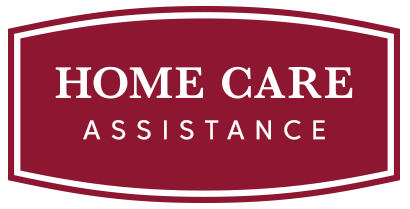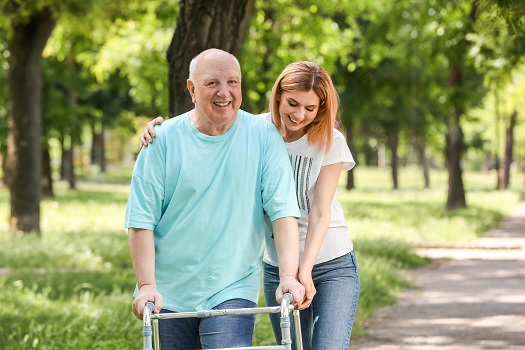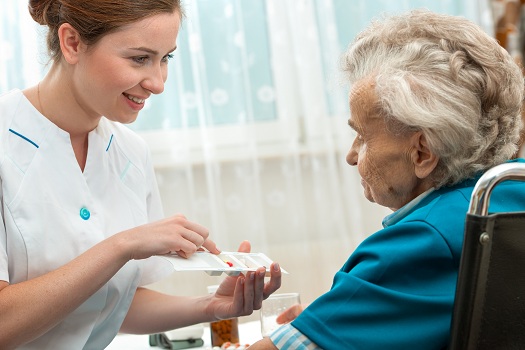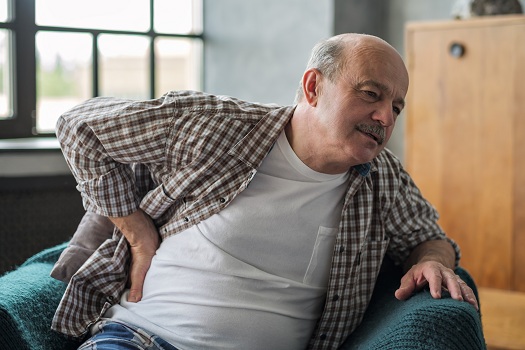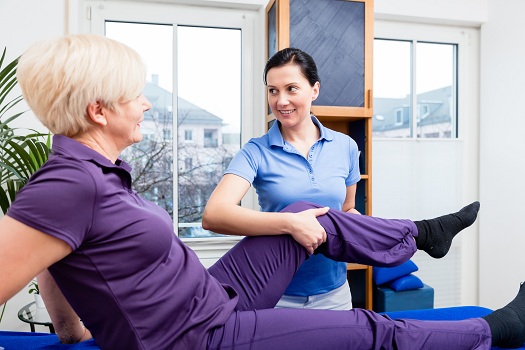-
 Sally Radovich
★★★★★
a month ago
Sally Radovich
★★★★★
a month ago
From the moment of the first call, every staff member that has been involved in Mom's care has been fabulous. I never feel rushed when chatting with Jennifer and she is always available to assist with questions and has great recommendations. … More The team comes through with additional hours as needed and responds to health changes and needs in an instant. They truly care about their clients and take great pride in providing excellent service.
-
 Jodi Fogel
★★★★★
5 months ago
Jodi Fogel
★★★★★
5 months ago
Suddenly I needed to hire a caregiver for one of my relatives. Home Care Assistance of Dallas was referred to me and after speaking with them on the phone I felt very comfortable entrusting them with my family member's care. The caregiver … More they sent to take care of them was attentive and caring. The entire process was a very good experience and I highly recommend Home Care Assistance of Dallas to anybody who needs to hire a caregiver for their loved ones.
-
 James W Coker
★★★★★
5 months ago
James W Coker
★★★★★
5 months ago
Words cannot express how appreciative I am of HCAoD and Shirley Smith and how caring and thoughtful she is of her assessment for my mother’s care. They really do care about their clients and their well-being. If you are looking for assistance … More in taking care of a loved one, you should absolutely consider home care assistance of Dallas.
-
 Brentt Steward
★★★★★
5 months ago
Brentt Steward
★★★★★
5 months ago
In these current times where excellent service is hard to find, I found excellence, and quality, and true compassion from Shirley, Ingrid, and all the other people I dealt with. If you're looking for quality care for a loved one, … More be sure to seriously consider Home Care Assistance of Dallas. They did more than I ever expected. Great folks, specially the two people named above. Brentt
-
 Cyndy Wiggins
★★★★★
5 months ago
Cyndy Wiggins
★★★★★
5 months ago
Home Care Assistance of Dallas provided my 98 year old mother with needed short term care. They were very easy to communicate with: prompt in their response to me. The caregivers met all my expectations and my mother was very pleased. Thank … More you Home Care Assistance. Would use them again.
-
 Burke Burnett
★★★★★
7 months ago
Burke Burnett
★★★★★
7 months ago
Last year we had reason to use HCAD for several months on short notice. They were extremely responsive, very competent, honest, and overall really important in helping us through a transition period for some elders in our family. I can … More recommend them without hesitation.
-
 Howard Smith
★★★★★
10 months ago
Howard Smith
★★★★★
10 months ago
Communication with HCA to set up care for my Mom was excellent. Shirley is so caring and easy to work with I felt very comfortable entrusting this company with my Mom’s care. Winnie, who actually worked with my Mom was awesome. Caring, … More helpful, patient, attentive and obviously very experienced and competent at what she does. I could not have asked for better and highly recommend Home Care Assistance of Dallas.
-
 Uche Mgbemena
★★★★★
9 months ago
Uche Mgbemena
★★★★★
9 months ago
Home care assistance of dallas is the go to, they are the best amongst the best, they offer variety of services as regards to meeting needs of your loved ones. Highly professional staffs from the top to the least, kind, warm, gentle and … More understanding staffs. That is the number 1 place you want to work and the number 1 place when you need help finding the perfect care for your elderly ones.
-
 Sandra Bulow-Hube
★★★★★
10 months ago
Sandra Bulow-Hube
★★★★★
10 months ago
I feel listened to and supported in making the decision to stay at home rather than moving to a facility. I have help safely showering, keeping me safe,, keeping my house tidy and caring for my two small dogs. When I have needed to make … More changes to my schedule or add hours, staff are very responsive. Thank you.
-
 Patrick Larkey
★★★★★
9 months ago
Patrick Larkey
★★★★★
9 months ago
My wife passed away in December, a week short of our 56th anniversary. Over the last three years as my wife declined, we had caregivers from another company for five hours a day, seven days a week. We had 44 different caregivers in that … More period of very mixed ability and motivation. Three of them were good but left for reasons of insufficient pay.
With Home Care Assistance, I have had one caregiver who is better than any of those who tended to my wife. It is somewhat more expensive but you get what you pay for with this company. Also, Shirley Smith has been stalwart with transportation assistance to and from medical appointments. Home Care Assistance warrants six stars thus far. -- Patrick Larkey
-
 Bidjaan Kassam
★★★★★
a year ago
Bidjaan Kassam
★★★★★
a year ago
My mom was severely injured & I need to get full time care for her. Home Care Assistance of Dallas was very patient with us. They spent a lot of time explaining the types of care they offered. Once provided, they never missed a … More day. And if someone was running late, the head of the company y showed up and filled it. There was never any pressure to continue service. They even sent material to our house to read more about care and they also sent material for making home improvements to mitigate future falls. Amazing service. Highly recommend!
-
 Robert Buchholz
★★★★★
9 months ago
Robert Buchholz
★★★★★
9 months ago
I recommend Home Care Assistance of Dallas highly. They've taken wonderful care of my parents for many years with professionalism and love.
-
 Steven Smith
★★★★★
9 months ago
Steven Smith
★★★★★
9 months ago
This is the go to for support of family members! They have supported us with the care of my parents and my wife’s parents as if they were family. When we have questions or need guidance they are prompt and supportive in stressful times. … More
-
 Mike Leatherwood
★★★★★
a year ago
Mike Leatherwood
★★★★★
a year ago
Home Care Assistance began caring for my 92 year old mother in our home about 3 weeks ago. Our caretakers, Meron and Evalynn, are both gentle and caring. Mom is currently under hospice care but her health and demeanor have improved so … More significantly that we are hoping she won't require hospice for much longer. She is happier than she's been in years and loves both of her caregivers.
-
 Richard C. Galperin
★★★★★
a year ago
Richard C. Galperin
★★★★★
a year ago
Care Assistance have been a wonderful surprise. Professional, caring and reliable. The results I have seen in my mother have been dramatic. I would highly recommend!
-
 Judith Stewart
★★★★★
a year ago
Judith Stewart
★★★★★
a year ago
My husband needed care for a weekend while I was out of town. We hired Home Care Assistance of Dallas to take care of him. The care giver took excellent care of him and we will definitely use them again!
-
 Linda Wade
★★★★★
a year ago
Linda Wade
★★★★★
a year ago
I am a professional caregiver . I have been caring for families, of love ones for 30+ years, through several HOME HEALTH AGENCIES. I must rate this agency a 5 🌟 for the professional services provided, not only for the clients but ago the … More support /consideration of their caregivers. I would recommend Home Care 🏡 Assistant Agency for anyone looking for excellent health care services. As well as employment opportunities.
-
 W Paul Stewart
★★★★★
a year ago
W Paul Stewart
★★★★★
a year ago
Home Care Assistance of Dallas responded quickly, they were very professional in assessing our needs, and my father loved the caregivers assigned to him for 24-hour care over a long weekend.
-
 Tom McCasland
★★★★★
a year ago
Tom McCasland
★★★★★
a year ago
I was impressed with our service representative as she was very organized and worked hard to fit our schedule. The caretakers were very professional and have great communications with us.
-
 Jeanne BAir
★★★★★
a year ago
Jeanne BAir
★★★★★
a year ago
Home Care Assistance of Dallas is a well run group of professionals who are dedicted to providing help to people who are in need of it. For example, if you are older and would appreciate having someone drive you, help you in your home, … More do your pills for you, this is the group for you! My husband and I have used this group to navigate through our day for several years now and are so appreciative for their expertise and care! Check it out!!
-
 Nina Nina
★★★★★
a year ago
Nina Nina
★★★★★
a year ago
I highly recommend Home Care Assistance, years back l worked for them as CNA ( Caregiver) and was very happy because as much as They cared about the client. They also cared about the caregivers just as much so it made it easy to work with … More them, I enjoyed every holiday they would Gift us some nice present, l moved far from Dallas.

